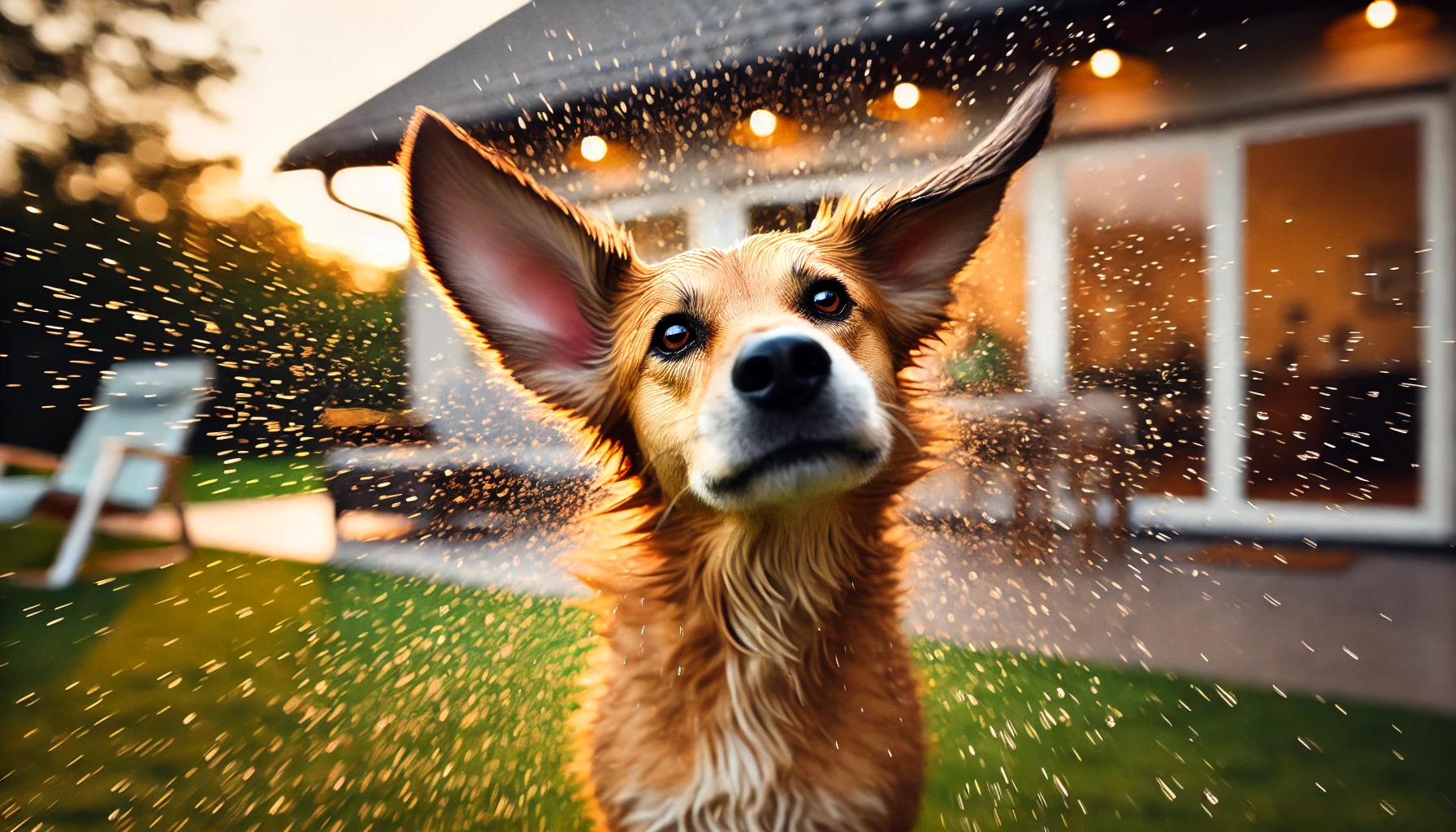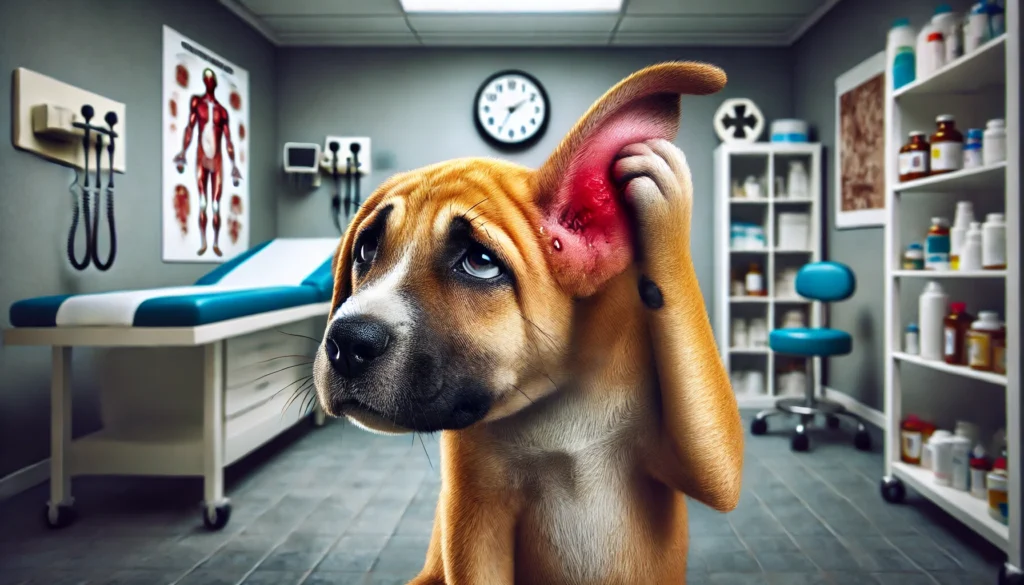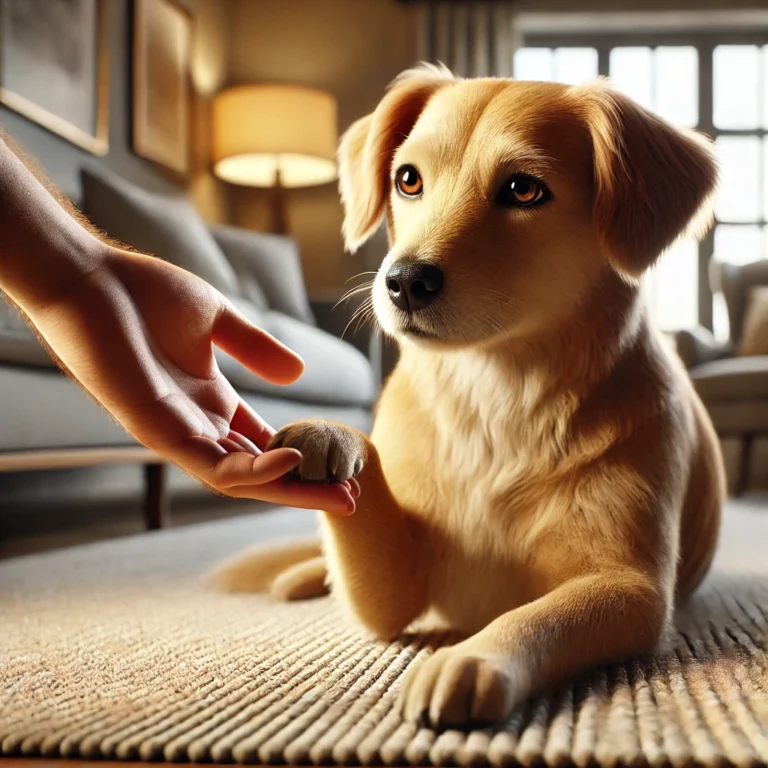10 Alarming Reasons Your Dog Keeps Shaking Its Head (And How to Stop It)

If your dog keeps shaking its head, it could signal more than just an itch. While an occasional head shake is normal, excessive or constant shaking can be a sign of an underlying problem. It could indicate anything from an ear infection to allergies or parasites. Ignoring the issue might lead to more severe health complications, such as ear hematomas or chronic infections.
Understanding why your dog keeps shaking its head is essential for keeping your pet comfortable and healthy. In this article, we’ll explore common reasons for head shaking in dogs, the warning signs to watch for, and how to stop it before it worsens.
Common Causes of Dog Shaking Head
- Ear InfectionsDog shaking head a lot is often linked to ear infections. Bacteria or yeast overgrowth inside the ear canal can cause irritation, redness, and discharge. If your dog keeps shaking his head and scratching his ear, it’s a clear sign that something is wrong. This condition is especially common in breeds with floppy ears, such as Cocker Spaniels or Basset Hounds.
- AllergiesJust like humans, dogs can develop allergies to pollen, dust, food, or flea bites. Allergies lead to ear itching and inflammation, causing dogs to shake their heads and scratch ears constantly. If your dog keeps shaking her head at night, it might be struggling with allergic reactions.
- Ear Mites or ParasitesEar mites are tiny parasites that live inside a dog’s ear canal. These mites cause extreme irritation, leading to canine head shaking and frequent scratching. Puppies are particularly vulnerable to puppy head shaking due to mite infestations.
- Foreign Objects in EarDogs love to explore, but sometimes tiny objects like grass seeds, dirt, or insects find their way into their ears. When this happens, dogs won’t stop shaking their heads until the object is removed.
- Water in Ears (After Swimming or Bathing)If your dog shakes its head while drinking water or after swimming, it might be trying to get water out of its ear canals. Water trapped in the ear can lead to infections, which causes dogs to keep shaking their ears.
- Ear HematomasConstant head shaking can result in an ear hematoma, where blood pools between layers of ear tissue. If your dog constantly flaps its ears or if one ear droops and the dog shakes its head, a hematoma could be developing.
- Head Tremors in DogsInvoluntary head shaking in dogs, especially in breeds like Chihuahuas, can indicate head tremors. These tremors are usually harmless but can appear alarming to owners.
- Injury or TraumaAn ear injury can cause significant discomfort. If your dog is shaking his head and panting, it could be dealing with pain from a recent injury. Trauma to the head or ear should be checked by a vet promptly.
- Excessive Wax or DebrisAccumulated wax or debris in a dog’s ears can irritate the ear canal, leading to dog head shaking and scratching ears frequently. Regular ear cleaning can prevent this issue.
- Behavioral Reasons (Stress or Excitement)
Some dogs develop habitual head shaking due to stress, anxiety, or excitement. Puppies shaking their heads after playing or eating might simply be expressing energy or calming themselves.
Key Point
If your dog keeps shaking its head, it could indicate issues like ear infections, allergies, mites, or trapped water, which need attention to prevent complications. Regular ear cleaning, timely vet visits, and proper treatment can help resolve the problem and keep your pet comfortable.
When to Worry: Symptoms That Need a Vet Visit
If your dog won’t stop shaking its head, it may be dealing with a serious problem that needs medical attention. While occasional head shaking is normal, you should contact your vet if you notice any of the following signs:
- Redness, Swelling, or Discharge from the Ears
These symptoms suggest ear infections or mites. A foul smell from the ears can indicate bacterial or yeast infections. - Constant Ear Scratching and Head Shaking
If your dog keeps shaking its head and scratching its ear, the irritation is likely severe. This could result in an ear hematoma, which will require surgery if left untreated. - Dog Shaking Head and Panting
Panting along with head shaking can indicate pain or discomfort. This may be caused by an injury, infection, or foreign object stuck in the ear. - One Ear Drooping or Swelling
If your dog has one drooping ear and keeps shaking its head, it might have an ear hematoma or ear trauma. Swelling and uneven ears require prompt veterinary care. - Head Shaking with Loss of Balance or Tremors
Involuntary head shaking or tremors, combined with loss of balance, could point to more severe neurological issues. It’s essential to rule out ear infections that might affect the inner ear and impair coordination. - Dog Keeps Flapping Ears at Night
Persistent night-time shaking and ear scratching might indicate an allergy or ear infection that worsens when the dog rests.
If you observe any of these symptoms, don’t delay a vet visit. Timely treatment can prevent long-term complications and help your dog feel better quickly.

How to Help Your Dog Stop Shaking Its Head
If your dog keeps shaking its head due to an underlying issue, timely intervention can help resolve the problem. Here are some effective ways to provide relief and prevent further discomfort:
1. Clean Your Dog’s Ears Safely at Home
- Use a vet-approved ear cleaning solution to gently clean the ear canal.
- Avoid using cotton swabs inside the ear, as they can push debris further in.
- Regular ear cleaning can prevent wax buildup, reducing the chance of infections.
2. Treat Ear Infections and Allergies
- If your dog keeps shaking ears and has redness or swelling, your vet may prescribe ear drops, antibiotics, or antifungal medication.
- For allergies, your vet may recommend antihistamines or special diets. Identifying allergens is key to managing allergic reactions.
3. Address Ear Mites or Parasites
- Ear mites can cause puppy head shaking and severe itching. Use medicated drops or topical treatments recommended by your vet to eliminate mites.
- Regular flea treatments also reduce the risk of ear mite infestations.
4. Remove Foreign Objects or Debris
- If your dog shakes its head while drinking water or after walks, check for foreign objects like grass seeds in the ear.
- Take your dog to the vet if you suspect an object is lodged deep in the ear canal.
5. Help Dogs Dry Their Ears after Swimming or Bathing
- Dogs that frequently swim are prone to ear infections due to trapped moisture. Use a drying solution or gently towel-dry your dog’s ears after water activities.
- If your dog shakes its head excessively after swimming, monitor for signs of infection.
6. Treat Ear Hematomas Promptly
- An ear hematoma can form when a dog constantly shakes its head. If swelling develops, a vet may need to drain the fluid or perform minor surgery to prevent further damage.
7. Reduce Stress or Behavioral Issues
- Some dogs shake their heads out of habit due to anxiety or excitement. Engage your dog in regular activities, provide toys, and maintain a calm environment to ease stress.
8. Regular Vet Checkups for Prevention
- Routine checkups ensure your dog’s ears stay healthy. Early detection of canine head shaking causes can prevent long-term problems.
By addressing the root cause of head shaking, you can keep your dog comfortable and healthy. If the problem persists despite treatment, it’s crucial to visit your vet to avoid complications.
Did You Know?
Cat owners often wonder, can cats eat pumpkin? The answer is yes, but there are a few things to keep in mind. Pumpkin can provide surprising health benefits for your feline friend, but it’s important to serve it the right way to avoid potential risks.
Conclusion
If your dog keeps shaking its head, it’s a sign that something is bothering them—whether it’s an infection, allergy, or a foreign object stuck in their ear. While occasional head shaking is normal, persistent shaking requires attention to avoid complications like hematomas or chronic infections.
The key is to identify the cause early and take appropriate action. Regular ear cleaning, vet checkups, and timely treatment can prevent most issues. If your dog won’t stop shaking its head or shows other symptoms like redness or discharge, don’t hesitate to contact your vet.
With the right care, your furry friend can feel comfortable again and avoid future ear problems.
FAQs
1. Why does my dog keep shaking his head at night?
Your dog may have allergies or ear infections that worsen at night. Mites or parasites can also cause itchiness, making your dog more restless after lying down.
2. Can water in a dog’s ear cause shaking?
Yes. Trapped water after swimming or bathing can irritate the ear canal, leading to infections and frequent head shaking.
3. How do I clean my dog’s ears safely?
Use a vet-approved ear cleaning solution and a soft cloth. Avoid using cotton swabs inside the ear to prevent damage or pushing debris further into the canal.
4. When should I take my dog to the vet for head shaking?
If your dog constantly shakes its head or shows signs like redness, swelling, or discharge, visit your vet immediately to prevent complications.
5. Why does my dog shake its head while drinking water?
Some dogs shake their heads to remove excess water from their ears. However, if this behavior is frequent, monitor for signs of infection or discomfort.






